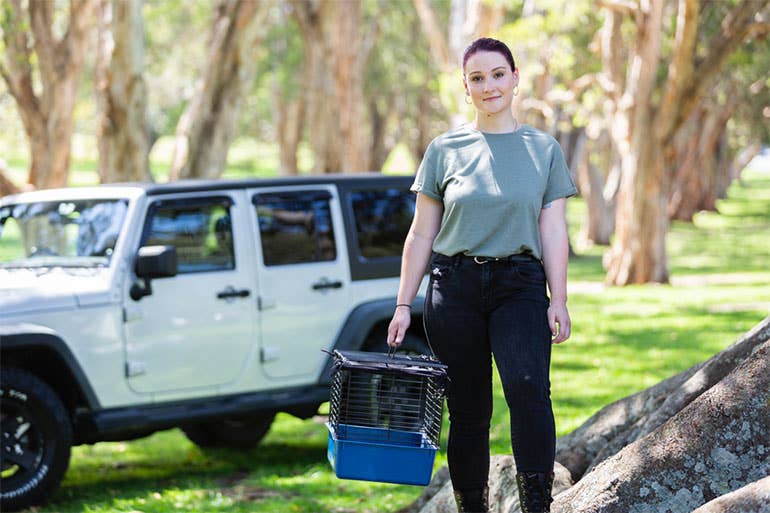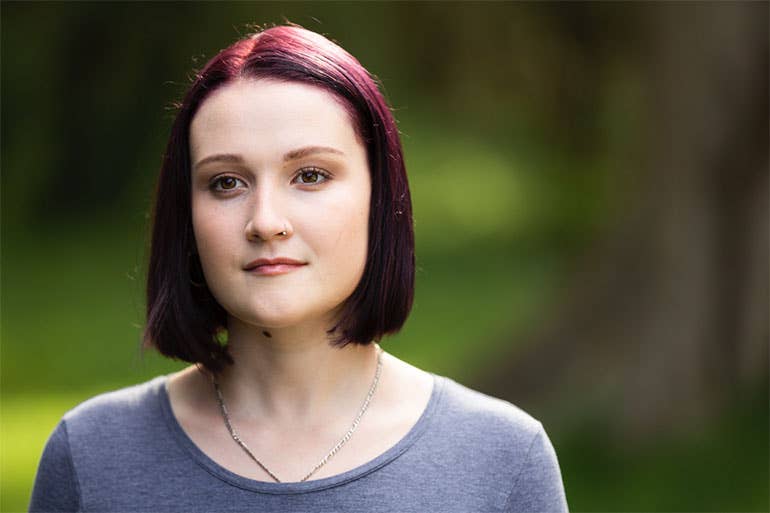Another way into UTS
Jessi Jean Drew-Smythe feels particularly strongly about bats.
“When I started in wildlife care, I was having a tough time and looking after baby flying foxes was so helpful in stabilising my mental health. They require a close bond between them and their mothers to develop properly - they need that connection and love,” Jessi says.
“Looking after them gave me a purpose and saved me in a way too. Now I am doing what I can to save them. I want to protect their home and promote how brilliant they are. I guess I’m just trying to save the world in a little way.”
“My mum says that that the perfect career for me would be professional animal cuddler - I would love for that to be a real job. However, my life today is about balancing looking after bats and cats and keeping my study under control. A professional career in bat conservation is my dream,” she says.
Jessi started volunteering in wildlife rescue at 18, and has learnt a lot about the environment and what’s important to restore the stability of bat (or more specifically flying fox) species, which have been in rapid decline.
“Bats only start to breed when they’re around three years old and are dying off fast, so their birth rate can’t keep up. The species is not replacing itself.”

Jessi Jean Drew-Smythe is passionate about animal conservation
When Jessi finished high school, she originally started studying interior design at college, but lost motivation and withdrew.
“I decided to look into a career with animals. I began a Certificate II in Animal Studies and started volunteering. After I finished the certificate I started a zookeeping qualification at Taronga Zoo where I worked in four areas over two years, including with farm and native animals, then primates, then birds, before finishing with my favourite area - Australian mammals,” she says.
This year she enrolled at UTS College in a Diploma of Science. Now Jessi is well on her way to completing a UTS science degree, focusing on ecology, biodiversity and conservation.
“The whole thing about finding yourself in high school is not always true. I left thinking I was going to pursue a career in interior design and then I crashed immediately. Because of the challenges I faced, I have now been able to get myself through multiple qualifications and found my dream through volunteer work,” Jessi says.
She has bold goals for a global conservation future and hopes to one day work in the United Kingdom, Europe or Africa.
“England has a lot of mircobat species. They are really tiny bats that eat only bugs. It would be cool to help out there. Alternatively, Africa has a large population of insectivorous bats, and that would be a great area to learn about disease transmission,” Jessi says.
“I am super keen to see what the future holds.”

Jessi Jean Drew-Smythe
Another way into UTS